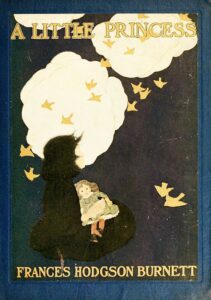 I attend a lot of writing workshops and webinars, and one perennial focus of the big presenters is, “Why should anybody read your book? Why read any book?” The answers to that question generally fall into two categories–we read for education (The Seven Secrets… The Insider’s Guide…. The Successful Person’s…), and we read for entertainment. (The Midnight Library; The Boys From Biloxi; Red, White, and Royal Blue…)
I attend a lot of writing workshops and webinars, and one perennial focus of the big presenters is, “Why should anybody read your book? Why read any book?” The answers to that question generally fall into two categories–we read for education (The Seven Secrets… The Insider’s Guide…. The Successful Person’s…), and we read for entertainment. (The Midnight Library; The Boys From Biloxi; Red, White, and Royal Blue…)
Those are valid answers, and one reason I love a well written biography is that it can do both–educate and entertain. But is that really all there is to reading? All there is to us as readers? We’re either improving our minds and lives with new information, or we’re indulging in a little recreation to fortify us/reward us for all the improvements and efforts lying ahead?
For me, it’s not that simple. How do you describe the feeling of coming out on top, after terrible disappointments and set backs, against all odds, when it really, really mattered, and you were terrified and despairing, because you had to change who you thought you were in order to honorably prevail? That plot has inspired countless tales, from The Mighty Ducks, to To Kill a Mockingbird, to It’s a Wonderful Life, to Sara Crewe.
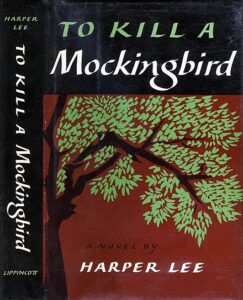 We read those stories for entertainment, but entertainment doesn’t stay with you for decades, providing encouragement, inspiration, and fresh perspectives. The great spiritual teachers didn’t turn to parables, fables, jatakas, and myths because they hoped for a lot of positive reviews on Amazon. They wanted to impart concepts and viewpoints that couldn’t be accurately conveyed or given adequate impact without the mysterious power of story.
We read those stories for entertainment, but entertainment doesn’t stay with you for decades, providing encouragement, inspiration, and fresh perspectives. The great spiritual teachers didn’t turn to parables, fables, jatakas, and myths because they hoped for a lot of positive reviews on Amazon. They wanted to impart concepts and viewpoints that couldn’t be accurately conveyed or given adequate impact without the mysterious power of story.
A young adult novel that captures the wonder and pain of coming of age, a romance that makes falling in love credible and lovely, a thriller that puts us in the shoes of reluctant super-spies taking on long odds… I believe we read these stories because they affirm that human experience is not, cannot be, and should not be reduced to a set of rational syllogisms or theories soon to be proven.
A sunset isn’t merely some colors that happen in the sky along certain wavelengths at certain hours in specific weather conditions. It’s a farewell, a surrender, a sigh, a symbol of mortality, a harbinger of respite, and much, much more.
The Enlightenment moved us forward in a lot of ways–technologically and socially– but it also cost us in the sense that miracles, mysteries, and numinous experiences all lost ground to the rational and measurable. I think it’s for precisely this reason that popular fiction (along with Protestant evangelical movements) blossomed just as Enlightenment thinking gained control of government, education, and commerce.
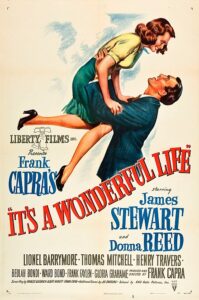 We are more than students in need of education, or economic drones who must be humored with escapist entertainment. To me, good stories affirm the wondrous potential of our nature, give it voice and inspiration, and resonate with that magnificence inside each one of us.
We are more than students in need of education, or economic drones who must be humored with escapist entertainment. To me, good stories affirm the wondrous potential of our nature, give it voice and inspiration, and resonate with that magnificence inside each one of us.
I read for entertainment and edification, but I also read for hope, for inspiration, for affirmation, and for reasons too big and too personal to ever find adequate expression in a few words. All I know is, when science, religion, and sheer determination have failed me, good books–a few of them now subject to bans in some jurisdictions–have kept me from giving up.
Why do you read?
NB: This post was inspired by an essay from the pen of newlywed Adam Mastroianni.







 I’ve been trying to drop some weight lately, and it’s not going well. It never goes well. I am not a glutton and I have plenty of self-discipline, but as my dad once said, I also have a metabolism suited to weathering an ice age. “Just wait 12,000 years, Grace. Everybody’s going wish they had your metabolism.”
I’ve been trying to drop some weight lately, and it’s not going well. It never goes well. I am not a glutton and I have plenty of self-discipline, but as my dad once said, I also have a metabolism suited to weathering an ice age. “Just wait 12,000 years, Grace. Everybody’s going wish they had your metabolism.”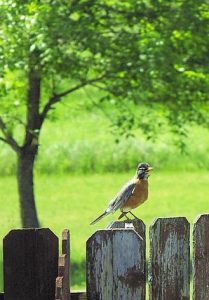
 Then I go to the therapeutic riding barn, where one of the lessons I assist with is for a young man who has cerebral palsy and scoliosis, both of which are likely to progress. I don’t know how he has the courage to get on a horse, much less how he stays in the saddle. But he does–every week.
Then I go to the therapeutic riding barn, where one of the lessons I assist with is for a young man who has cerebral palsy and scoliosis, both of which are likely to progress. I don’t know how he has the courage to get on a horse, much less how he stays in the saddle. But he does–every week.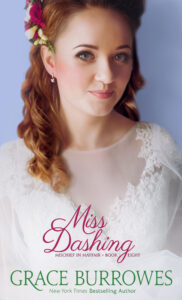 I believe that preaching, “Count your blessings” to somebody who is gloomy and frustrated is unkind an unproductive, but I also know that genuine gratitude can help me re-set my outlook. So this is me, going out for another walk, minus the weight of (most of) my grumpiness.
I believe that preaching, “Count your blessings” to somebody who is gloomy and frustrated is unkind an unproductive, but I also know that genuine gratitude can help me re-set my outlook. So this is me, going out for another walk, minus the weight of (most of) my grumpiness. My mood lately is irritable.
My mood lately is irritable. The adult me knows I’m very, very lucky, and my life is awash in blessings. The less philosophical part of me is looking (grumpily) for reasons to smile, and here is a little bit of what I’ve found this week:
The adult me knows I’m very, very lucky, and my life is awash in blessings. The less philosophical part of me is looking (grumpily) for reasons to smile, and here is a little bit of what I’ve found this week: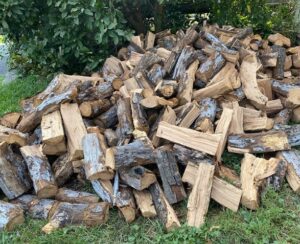 I like that my most recent COVID booster–and all my COVID boosters–have been free. Yes, I know, our tax dollars paid for them, but a) the drug was available, and b) all I had to do was ask the nice pharmacist if I could be vaccinated, and within 24 hours, I had another little shot of safety. I’ve scheduled air travel in upcoming months, and this was a box I needed check.
I like that my most recent COVID booster–and all my COVID boosters–have been free. Yes, I know, our tax dollars paid for them, but a) the drug was available, and b) all I had to do was ask the nice pharmacist if I could be vaccinated, and within 24 hours, I had another little shot of safety. I’ve scheduled air travel in upcoming months, and this was a box I needed check.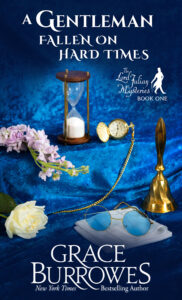 I found a guy willing to deliver a cord of firewood, and it’s sitting in a nice, fragrant heap in my side yard. I got caught with my pants down in terms of firewood last year, and by Christmas (as the single digits were bearing down), there was none to be had for love nor homemade cookies. I managed with what I scavenged from my own property, but I promised myself I would not let that happen again. Promise to myself (and my washing machine plumbing) kept.
I found a guy willing to deliver a cord of firewood, and it’s sitting in a nice, fragrant heap in my side yard. I got caught with my pants down in terms of firewood last year, and by Christmas (as the single digits were bearing down), there was none to be had for love nor homemade cookies. I managed with what I scavenged from my own property, but I promised myself I would not let that happen again. Promise to myself (and my washing machine plumbing) kept. Every slight to a person’s good name has to be personally addressed, and personal integrity is highly valued. Personal status and personal accomplishments affect influence and standing–none of this created equal baloney. Whereas a dignity culture might become excessively litigious, an honor culture can descend into bloody feuds and vigilantism.
Every slight to a person’s good name has to be personally addressed, and personal integrity is highly valued. Personal status and personal accomplishments affect influence and standing–none of this created equal baloney. Whereas a dignity culture might become excessively litigious, an honor culture can descend into bloody feuds and vigilantism. That being the case, Julian is surrounded by people who still value symbols of honor. Signet rings, family titles, dueling scars, regalia of office, and military forms of address carried into civilian life all made sense to Julian before he became a prisoner of war, then an injured veteran. By the time we meet him, he’s a man in transition.
That being the case, Julian is surrounded by people who still value symbols of honor. Signet rings, family titles, dueling scars, regalia of office, and military forms of address carried into civilian life all made sense to Julian before he became a prisoner of war, then an injured veteran. By the time we meet him, he’s a man in transition. Julian still has a badge or two of honor, though. Because his eyes were damaged by a battlefield explosion, he needs tinted spectacles to deal with strong sunlight. He wears them with pride, always has a spare pair on hand, and soon becomes closely identified with them in larger society. They announce to the world (that feels entitled to judge him unfairly) that he’s suffered for his country. His specs also afford him some privacy, to the extent that the eyes are windows to the soul.
Julian still has a badge or two of honor, though. Because his eyes were damaged by a battlefield explosion, he needs tinted spectacles to deal with strong sunlight. He wears them with pride, always has a spare pair on hand, and soon becomes closely identified with them in larger society. They announce to the world (that feels entitled to judge him unfairly) that he’s suffered for his country. His specs also afford him some privacy, to the extent that the eyes are windows to the soul. If you try to look back past more than about a month of my blog posts, you will find I have de-published ten years worth of weekly material. I did this, because Google has
If you try to look back past more than about a month of my blog posts, you will find I have de-published ten years worth of weekly material. I did this, because Google has  The situation with AI encroaching on creative livelihoods generally has me down. The wretched heat has me down, as does the thought that we might look back on this summer as “before it really got hot.” Summer is never a great time for book sales, and the stinkin’ Japanese beetles got after my little cherry trees before I even knew Japanese beetles liked cherry trees.
The situation with AI encroaching on creative livelihoods generally has me down. The wretched heat has me down, as does the thought that we might look back on this summer as “before it really got hot.” Summer is never a great time for book sales, and the stinkin’ Japanese beetles got after my little cherry trees before I even knew Japanese beetles liked cherry trees. I was really not in the mood to get on the dreaded tread desk yesterday evening, so I… went to the pool.
I was really not in the mood to get on the dreaded tread desk yesterday evening, so I… went to the pool.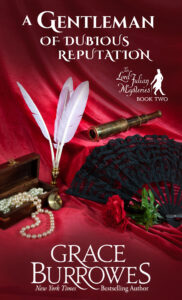 I took about a half dozen turns off the one-meter board, though I didn’t have the nerve to do that one-two-three-bounce prep that presages a really good upward arc. For no reason I can explain, by the second dive, I was giggling at myself. I am no sylph, and when I leave that board, it doth bounce, but ye gods, I had fun. This is a joy I can still claim, a little micro-accomplishment (from when I was five) that still resonates.
I took about a half dozen turns off the one-meter board, though I didn’t have the nerve to do that one-two-three-bounce prep that presages a really good upward arc. For no reason I can explain, by the second dive, I was giggling at myself. I am no sylph, and when I leave that board, it doth bounce, but ye gods, I had fun. This is a joy I can still claim, a little micro-accomplishment (from when I was five) that still resonates. I’m writing a story now to wrap up the Mischief in Mayfair series (look for a new title on the Coming Soon page in a few weeks), and that turns my thoughts to What’s Next? More happily ever afters, of course! But readers like series, and I like series, and so that brings me to…. Mayfair Blossoms.
I’m writing a story now to wrap up the Mischief in Mayfair series (look for a new title on the Coming Soon page in a few weeks), and that turns my thoughts to What’s Next? More happily ever afters, of course! But readers like series, and I like series, and so that brings me to…. Mayfair Blossoms.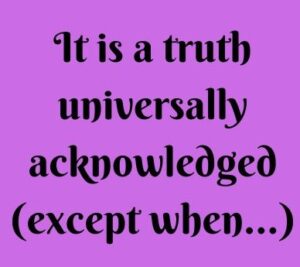 The ladies will also have super-fears or flaws too of course. A fear of heights, dogs, public speaking, and so forth. Though let it be said, I plot and my characters laugh. The gents will have their own issues.
The ladies will also have super-fears or flaws too of course. A fear of heights, dogs, public speaking, and so forth. Though let it be said, I plot and my characters laugh. The gents will have their own issues.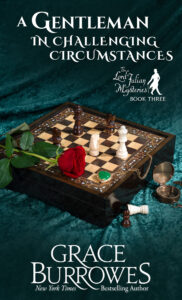 combination of re-orienting activities, because too much of that list is what I do at the end of a writing session. The barn time is a different sort of challenge.
combination of re-orienting activities, because too much of that list is what I do at the end of a writing session. The barn time is a different sort of challenge. Last week’s comments, about how many of us are worried, anxious, and fretful, started me thinking about my mom. She used to say that she got stupid when she was anxious. She was right on
Last week’s comments, about how many of us are worried, anxious, and fretful, started me thinking about my mom. She used to say that she got stupid when she was anxious. She was right on  And this in turn led to me to recall a class I took about twenty-five years ago, “Sustaining the Peacemaker.” I was in a conflict studies master’s program, and my classmates were from South Africa, the Middle East, the Balkans, the Baltimore slums, and so forth. They were coming from and preparing to return to areas gripped by deadly strife.
And this in turn led to me to recall a class I took about twenty-five years ago, “Sustaining the Peacemaker.” I was in a conflict studies master’s program, and my classmates were from South Africa, the Middle East, the Balkans, the Baltimore slums, and so forth. They were coming from and preparing to return to areas gripped by deadly strife. I garden with my bare hands, because playing in the dirt makes me happy (I’ve got
I garden with my bare hands, because playing in the dirt makes me happy (I’ve got  This is only a partial list of my coping strategies, but I find the very act of looking over all the actions I can take to keep myself safe and sane–from simple stuff, like a gratitude journal or jasmine-scented candle, to not so simple stuff like professional body work–is empowering in itself. A worried author is not at her best, just as a worried, parent, spouse, teacher, neighbor, and so forth is not at her best. For myself, and for my readers, I want to be at my best.
This is only a partial list of my coping strategies, but I find the very act of looking over all the actions I can take to keep myself safe and sane–from simple stuff, like a gratitude journal or jasmine-scented candle, to not so simple stuff like professional body work–is empowering in itself. A worried author is not at her best, just as a worried, parent, spouse, teacher, neighbor, and so forth is not at her best. For myself, and for my readers, I want to be at my best.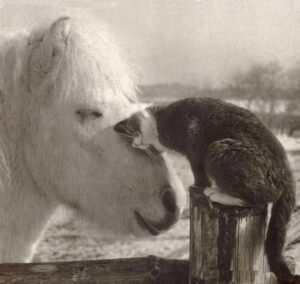 I am embarking on a new adventure. Might be a new phase of life, might be a blip on the screen. I did the volunteer training for a therapeutic riding program about thirty minutes from my house. I’ve known of this outfit for years–they are coming up on their five decade anniversary–and they are much closer to me than the barn where I was riding.
I am embarking on a new adventure. Might be a new phase of life, might be a blip on the screen. I did the volunteer training for a therapeutic riding program about thirty minutes from my house. I’ve known of this outfit for years–they are coming up on their five decade anniversary–and they are much closer to me than the barn where I was riding.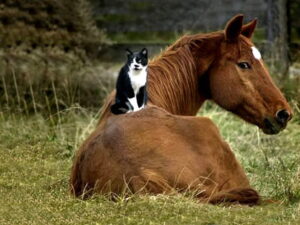 Erm… Yes, well. My own acronym might be HAWT. I am seldom Late, but I am often Worried. Somebody else might prefer HATS–because Sadness dogs them more than a lack of punctuality.
Erm… Yes, well. My own acronym might be HAWT. I am seldom Late, but I am often Worried. Somebody else might prefer HATS–because Sadness dogs them more than a lack of punctuality. From two different newsletters this week (one of them
From two different newsletters this week (one of them 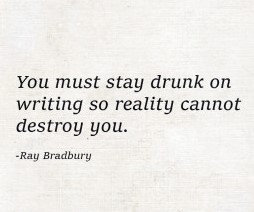 Neurology supports making creative work a first-thing-in-the-day priority. For about 90 minutes after rising, our brains are still trailing alpha waves, and we’re switching easily between task-oriented thinking and random mental motion. Associations between distant ideas are more likely in that state, and for many writers, this how we find plot twists, great dialogue, and other fun material.
Neurology supports making creative work a first-thing-in-the-day priority. For about 90 minutes after rising, our brains are still trailing alpha waves, and we’re switching easily between task-oriented thinking and random mental motion. Associations between distant ideas are more likely in that state, and for many writers, this how we find plot twists, great dialogue, and other fun material.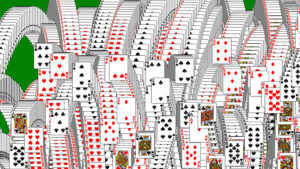 urgent all the time), then at days’ end, what mattered to me most–new pages–didn’t happen. If I planned some writing time, but let life (or solitaire) lead me astray, I end my day on a downer.
urgent all the time), then at days’ end, what mattered to me most–new pages–didn’t happen. If I planned some writing time, but let life (or solitaire) lead me astray, I end my day on a downer.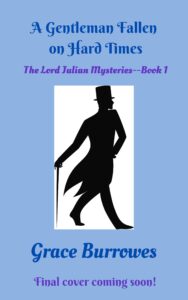 If I tend to that, the housework, socializing, errands, grocery runs, and so forth don’t feel as if they are robbing time from the activity that makes my lovely little life possible.
If I tend to that, the housework, socializing, errands, grocery runs, and so forth don’t feel as if they are robbing time from the activity that makes my lovely little life possible.